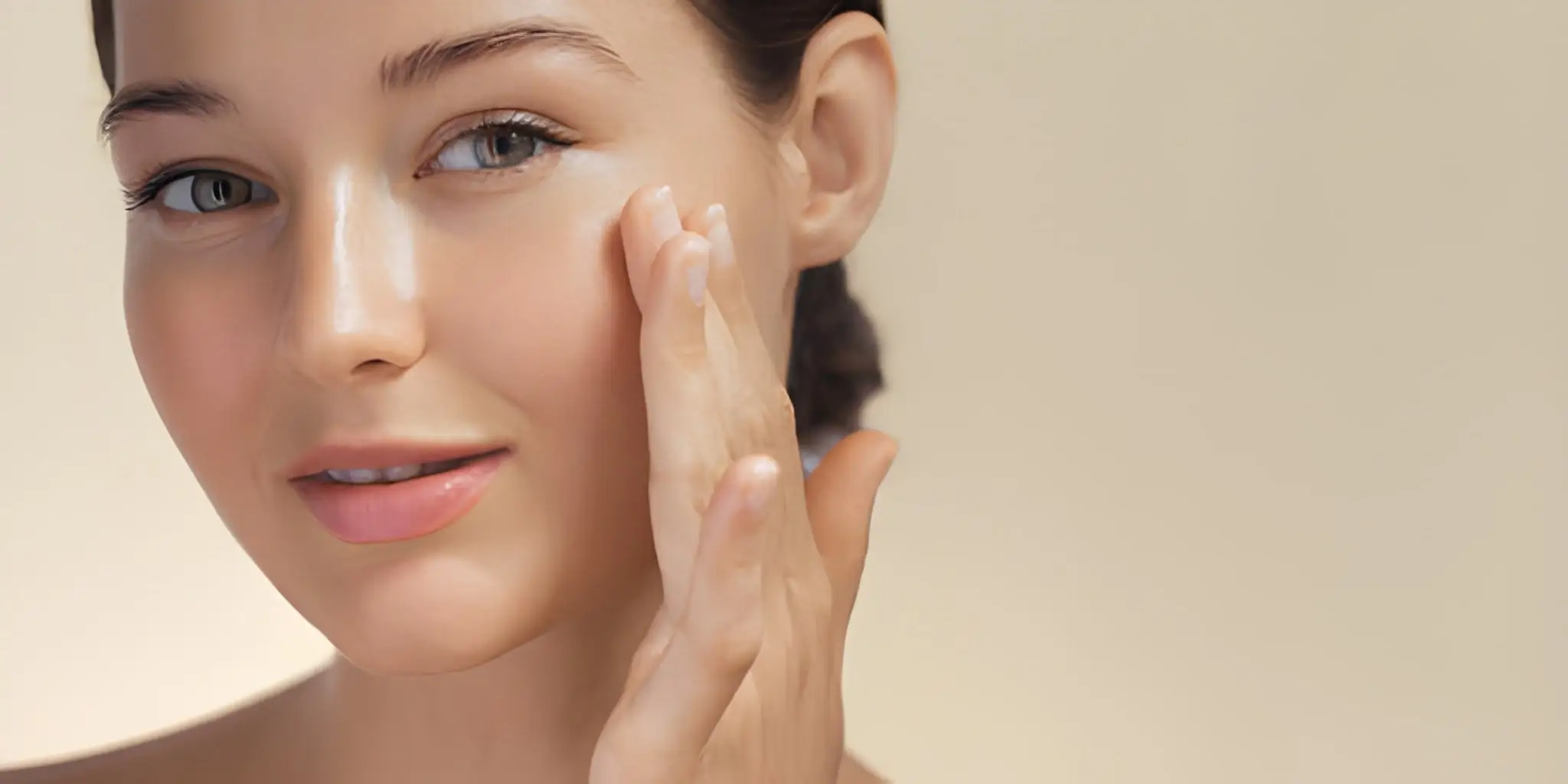Dehydrated Skin Solutions: Why Radiance Infusion Works Best
Your skin feels tight after washing. Makeup sits badly on your face. You apply moisturiser twice a day, but nothing changes. If this sounds familiar, you’re probably dealing with dehydrated skin – not dry skin.
Many people mix up these two conditions. They buy heavier creams and oils, hoping their skin will improve. But when your skin lacks water (not oil), surface products can’t fix the problem. You need deep hydration from within.
Ready to revive your skin? Book your Radiance Infusion treatment at our Newcastle clinic today.
What Is Dehydrated Skin?
Dehydrated skin happens when your skin cells don’t have enough water. This is different from dry skin, which lacks oil. You can have oily skin and still experience dehydration. Your skin might produce excess oil to compensate for the water loss.
Signs you have dehydrated skin:
- Your face feels tight, especially after cleansing
- Fine lines and wrinkles appear more visible
- Your skin looks dull and tired
- Makeup doesn’t blend smoothly
- You notice redness and irritation
- Dark eye circles seem worse than usual
Your skin’s outer layer (the skin barrier) protects you from environmental damage. When this barrier loses water, it can’t function properly. The result? Your skin becomes sensitive, rough, and loses its natural glow.
Also Read : https://skinduced.com.au/what-is-lip-enhancement/
Why Regular Moisturisers Don’t Always Work
You might’ve tried different products – serums, masks, heavier creams. Some help temporarily, but the tightness returns. Here’s why: most skincare products work on your skin’s surface. They create a protective layer that prevents water loss. But if your skin is already lacking water deep inside, these products can’t replenish what’s missing.
Think of it like this. If a plant’s roots are dry, spraying water on its leaves won’t help much. The plant needs water to reach its roots. Your skin works similarly. It needs hydration that penetrates deeper layers, not just surface moisture.
This is where professional treatments make a real difference.
How Radiance Infusion Addresses the Root Cause
Radiance Infusion is a medical-grade hydration treatment. It delivers nutrients and moisture directly into your skin’s deeper layers. Unlike topical products, this treatment works from the inside out.
The process is simple. Our trained clinicians use specialised techniques to infuse hydrating ingredients into your skin. These ingredients include hyaluronic acid, which can hold up to 1000 times its weight in water. When your skin receives this level of hydration, the results are visible almost immediately.
Most clients notice softer, plumper skin after just one session. Your face looks fresher. Fine lines appear less noticeable. The tight, uncomfortable feeling disappears.
At Skinduced Aesthetics Clinic, our skin experts assess your hydration levels before recommending a customised Radiance Infusion plan. Book your professional consultation in Newcastle today.
What Makes This Treatment Different
Many factors cause dehydrated skin. Long working hours in air-conditioned offices drain moisture from your face. Not drinking enough water affects your skin’s ability to stay hydrated. Stress, late nights, and sun exposure also play a role. Even your skincare routine might be stripping away natural moisture if you’re using harsh products.
Radiance Infusion addresses these issues by:
Delivering Deep Hydration: The treatment penetrates beyond your skin’s surface. It hydrates the layers where moisture loss actually happens.
Supporting Your Skin Barrier: When your barrier is strong, it holds water better. The infusion helps repair and strengthen this protective layer.
Providing Instant Results: You don’t need to wait weeks to see changes. Most people notice improvements within 24-48 hours.
Requiring Minimal Downtime: You can return to work or your daily routine immediately. There’s no recovery period needed.
Who Benefits Most from This Treatment
We see many clients at our Cameron Park clinic who’ve struggled with dehydrated skin for months. They’ve tried everything from drugstore products to expensive serums. Nothing gave them the results they wanted.
Women preparing for weddings or special events often book this treatment. They want their makeup to sit perfectly and their skin to look radiant in photos. Young mothers dealing with sleepless nights choose Radiance Infusion to refresh their tired-looking skin.
Men also benefit from this treatment. If you work outdoors or spend long hours in office environments, your skin takes a beating. You want something that works quickly without complicated aftercare. Radiance Infusion fits that need perfectly.
The treatment works for all skin types. Whether you have oily skin that still feels dehydrated, or combination skin that behaves unpredictably, Radiance Infusion can help. Our clinicians customise each session based on your specific needs.
Supporting Your Results at Home
Professional treatment gives you the deep hydration your skin needs. But you can support these results with a few simple changes to your daily routine.
Drink plenty of water throughout the day. Your skin needs internal hydration too. Aim for at least 8 glasses daily, more if you exercise or spend time outdoors.
Choose gentle cleansers that don’t strip your skin. Harsh soaps remove natural oils and disrupt your skin barrier. Look for products labelled as hydrating or pH-balanced.
Add hydrating serums to your skincare routine. Products with hyaluronic acid help your skin hold moisture better. Apply them on damp skin for better absorption.
If you wear makeup, consider switching to liquid foundations with hydrating formulas. Powder products can make dehydrated skin look worse. Liquid formulas blend better and often contain moisturising ingredients.
Pay extra attention to your skin during winter or in air-conditioned spaces. These environments pull moisture from your face faster. You might need extra hydration during these times.
What to Expect During Your Visit
Many first-time clients feel nervous about trying professional treatments. They’re not sure what happens during the session or how long it takes. Let me walk you through the process.
Your appointment starts with a consultation. Our clinician examines your skin and asks about your concerns. This helps us understand what your skin needs and plan the best approach.
The actual treatment is comfortable and relaxing. You lie down while we apply the hydration infusion to your face. Most sessions take 45-60 minutes. Many clients find it so relaxing that they almost fall asleep.
You’ll see immediate improvement after your first session. Your skin feels softer and looks fresher. The full results develop over the next few days as the hydration settles into your skin’s deeper layers.
For best results, we recommend a series of treatments. Some clients book sessions monthly to maintain their glow. Others come in before important events to look their best.
Why Choose Professional Treatment Over DIY Solutions
You can find countless home remedies and product recommendations online. Some promise miracle results. Most fall short because they can’t deliver the deep hydration your skin needs.
Professional treatments like Radiance Infusion use medical-grade ingredients. These are more concentrated and effective than what you’ll find in retail products. They’re also applied using techniques that ensure proper penetration and absorption.
Safety is another important factor. Our treatments are performed under professional supervision. We monitor your skin’s response and adjust the treatment if needed. This level of care isn’t possible with at-home products.
The results speak for themselves. Clients who’ve tried everything else finally see the changes they wanted. Their makeup applies smoothly. Their skin feels comfortable all day. Friends and colleagues notice the difference.
Taking the Next Step
If you’re tired of dealing with tight, uncomfortable skin that doesn’t respond to regular products, it’s time to try something different. Dehydrated skin needs more than surface solutions. It needs real, deep hydration that reaches the layers where moisture loss happens.
Radiance Infusion provides exactly that. It’s a safe, effective treatment with visible results and no downtime. Whether you’re preparing for a special event or simply want to feel more confident in your skin, this treatment can help you achieve your goals.
Restore your skin’s glow with our Radiance Infusion treatment – available now at Skinduced Aesthetics Clinic, Newcastle. Book your session today and experience softer, more radiant skin that feels as good as it looks.
Your skin deserves proper care from professionals who understand what it needs. Visit our clinic in Cameron Park, NSW, and let us show you the difference real hydration can make.
FAQs:
How to fix dehydrated skin?
You can fix dehydrated skin by restoring water content within the deeper layers, not just adding surface moisture. Drinking enough water, using gentle cleansers, and applying hyaluronic acid serums help. For lasting results, professional hydration treatments like Radiance Infusion at Skinduced Clinic in Newcastle provide deep, medical-grade moisture your skin truly needs.
How to treat dehydrated skin?
Treat dehydrated skin with both at-home care and professional therapy. Avoid harsh products, stay hydrated, and include humectants like hyaluronic acid in your routine. For faster, visible improvement, try Radiance Infusion, a medical-grade treatment that delivers moisture directly into your skin’s deeper layers for lasting softness and glow.
What is the difference between dry skin?
Dry skin lacks oil, while dehydrated skin lacks water. You can have oily yet dehydrated skin at the same time. Dryness is a skin type; dehydration is a temporary condition. Treatments like Radiance Infusion help replenish lost water and strengthen your skin barrier for improved hydration balance.
Who is Radiance Infusion best suited for?
Radiance Infusion is ideal for anyone experiencing dull, tight, or tired-looking skin. It benefits men and women of all skin types, especially those working long hours in air-conditioned spaces or exposed to the sun. Clients preparing for weddings or special events also choose it for instant glow and smooth makeup application.
How many Radiance Infusion sessions do I need?
Most clients notice visible improvement after one session, but a series of treatments delivers longer-lasting hydration. Your clinician at Skinduced Aesthetics Clinic will assess your skin and recommend a tailored plan, usually one session every few weeks or monthly for maintenance.
Is Radiance Infusion safe for sensitive skin?
Yes. Radiance Infusion is a safe, non-invasive treatment suitable for sensitive skin. It uses gentle, medical-grade ingredients like hyaluronic acid to hydrate without irritation. Every treatment at Skinduced Clinic is performed by trained professionals who customise the process to your skin’s condition and comfort level.


